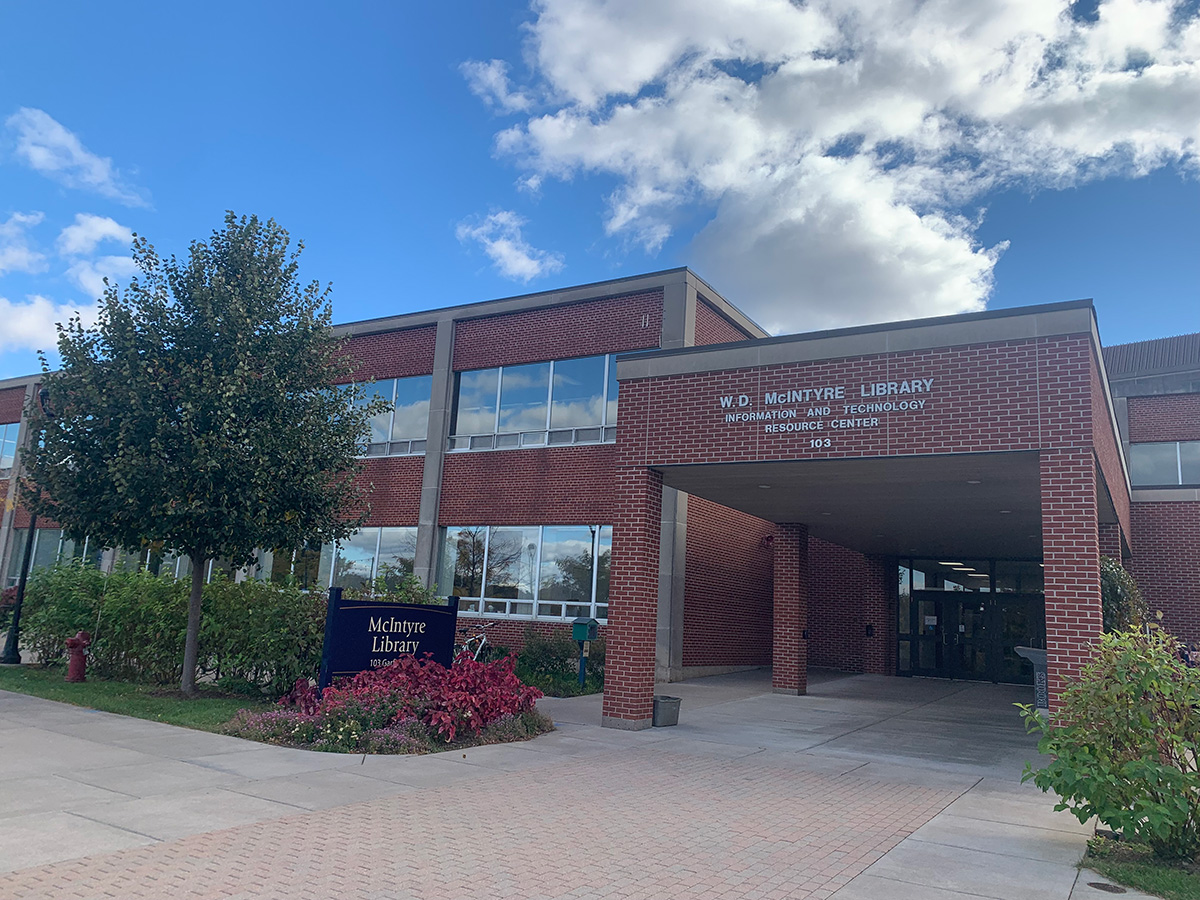 Adrian Northrup
Adrian NorthrupTraveling to classes used to be a relatively mindless, mundane task for senior Ashley Gildner. But this semester it has been unusually taxing.
Time between classes is a precious commodity as she heaves doors and lugs her books, all while plodding along on crutches – the temporary results of a summer mishap in which she broke four bones in her foot.
“It never crossed my mind,” she said of her first four years in college. “I can’t even imagine how people who have to deal with this on a daily basis for the rest of their lives operate.”
That’s the sort of perspective students with disabilities and the officials that address their needs say is critical to understand the deficiencies in UW-Eau Claire’s level of accessibility, in spite of its continual efforts to meet or even surpass legal standards.
Last year the Services for Students with Disabilities Office served 240 students, whose challenges range from ADD and learning disabilities to physical issues like impaired mobility or hearing.
That number is low for a campus the size of Eau Claire, said Kathy Hurley, director of Services for Students with Disabilities, which means there are probably more disabled students not receiving service.
Students with various disabilities expressed frustration over university facilities – even pointing out the ironically inaccessible SSD office, which sits on the second floor of the Old Library.
Senior non-traditional student Doug Black, 66, uses a power chair to get around since cancer and back trouble made it difficult for him to walk.
He has had to reroute his path on campus to ensure that he can find inclines, chairlifts and automatic door openers, and even then many doorways leave him with inadequate clearance for his power chair. He also has problems in classrooms and computer labs and is rarely near an accessible bathroom.
“It’s completely changed the way I get around campus,” he said.
Other mobility-impaired students agreed with Black on many of the concerns and also cited problems with parking.
Students with less obvious disabilities agreed that most people don’t consider their difficulties and that the university could do more.
Sophomore Becca Le Koshak, who has ADD and a learning disability in math, said simple improvements like better signage for classroom locations would help, since her disabilities make remaining oriented difficult.
There are positives, students said, mainly in the SSD office, which offers a variety of services, from organizing isolated rooms or extended test periods for students with learning disabilities to assistance for students who can’t communicate in more conventional manners.
Hurley said there’s always room for improvement and that her office could use more resources.
“These are very smart, very capable people,” she said. “We have to make sure that once they are here, they have access.”
SSD’s budget is on a needs-driven basis, said Vice Chancellor of Business Affairs Andrew Soll.
In the 2004-2005 fiscal year, SSD’s expenditures reached $177,350, according to university records. That’s $17,004 more than the previous year. While the increase is not due to any one area, Soll said, sign language interpreters generally constitute the largest portion of SSD’s budget.
In terms of campus facilities, Steve Horner, director of Facilities Planning, said his office always considers accessibility as it is completing various renovations and maintenance projects, but that his office must prioritize because of financial and architectural limitations.
“We are fair and improving quickly,” Horner said in rating Eau Claire’s accessibility level. “There are some areas that need improvement.”
Part of the problem, he said, is the constantly evolving codes. Some bathrooms, for example, are legally up to code but were built under old standards.
The university is constantly striving to ensure compliance with the 1990 Americans With Disabilities Act, Horner said, but there’s also a difference between being up to code and actually meeting student needs.
Under a “universal design” approach, he said, designers consider the utility of facilities for all students in addition to those with disabilities, going beyond the bare minimum required by law.
But cost is always a major issue.
Costs for changing a door knob to a lever, removing a center post in doorway or installing an automatic door opener range from $100 to a few thousand dollars for each project.
Money for facilities improvement, Soll said, comes from the state. Any major changes improving accessibility, he said, are generally part of a larger project because the state doesn’t provide a separate cache of money solely for accessibility issues.
The university, he said, has to do what it can while remaining practical. Examples of priorities the university has made in the past, he said, include the installation of orange flashing strobes on fire alarms to alert hearing-impaired students and designated rescue areas for students with mobility issues to go to in the event of a fire.
“We do try to listen to students,” Soll said. “In some cases we do what we can, and in others we look for alternatives.”






